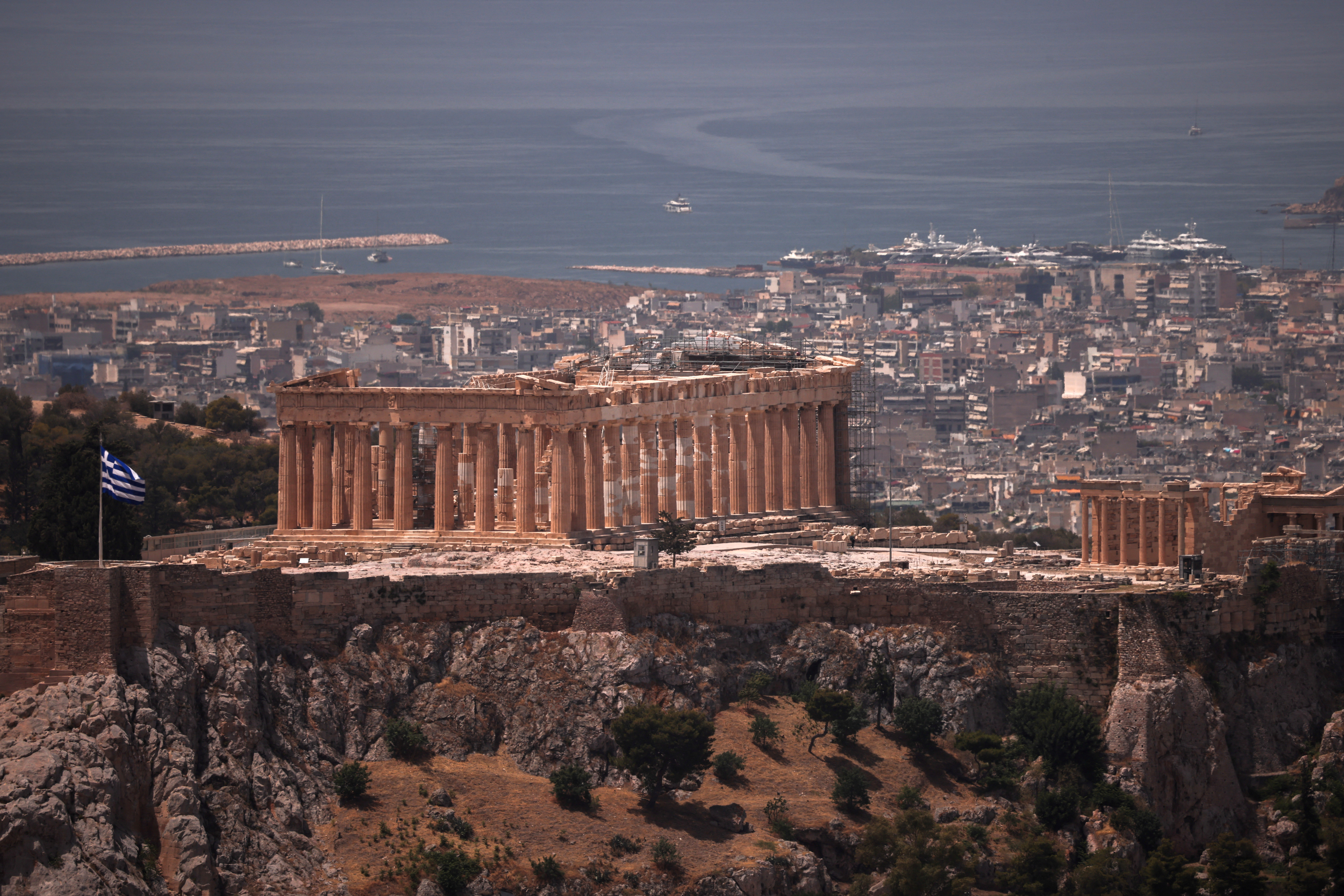Greece shut the ancient Acropolis tourist site, suspended schools and stationed medics across Athens on Wednesday as it faced the first heatwave of the summer.
Temperatures were expected to hit 43 degrees Celsius (109 degrees Fahrenheit) on Wednesday and Thursday in parts of the Mediterranean country, driven by southerly winds bringing hot air and dust from North Africa.
The Acropolis hill, home to one of the world’s most famous archaeological sites that includes the Parthenon temple, was closed from noon to 5 p.m. (0900-1400 GMT) and Red Cross staff handed out bottles of water to tourists.
Many primary schools and nurseries across the country will shut for two days.
Greece is one of the most climate-impacted countries in Europe. Last year, rising temperatures fuelled deadly wildfires and erratic rains caused some of the worst flooding on record, both of which damaged crops and livelihoods.
Last winter was the hottest on record and rainfall was low, creating the conditions for more fires, scientists say.
Similar conditions were seen last year across much of southern Europe, including Portugal, France, Spain and Italy where fires caused dozens of deaths.
In Greece, fires began earlier than expected this year, including one in March.
Firefighters and police were patrolling forests from air and land on Wednesday, ahead of what is expected to be a windy end to the week, raising the risk of fires spreading.
After last year’s destructive wildfires, including on the island of Rhodes which prompted the biggest evacuation in peace time, Greece has scaled up its preparations by hiring more staff and stepping up training.






Click here to change your cookie preferences